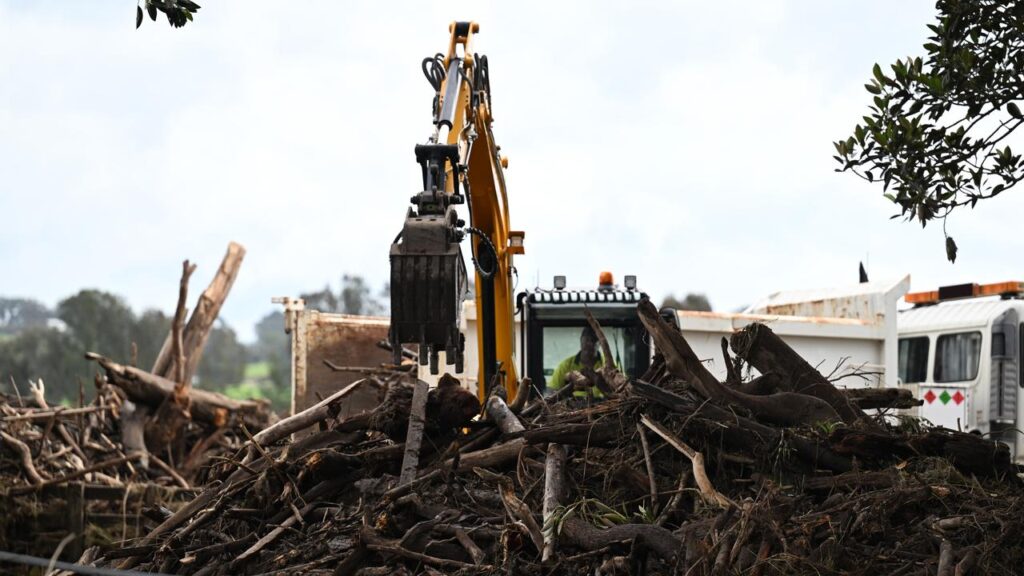Thousands still stranded as flood recovery ramps up
Jack Gramenz, Alex Mitchell and Farid Farid |

Rescuers have saved horses and helped paramedics reach isolated patients as the recovery effort continues after record-breaking floods that killed five people.
More than 1000 buildings have been declared uninhabitable amid promises for further government assistance.
About 3500 people remain isolated along the NSW mid-north coast, despite waters receding in recent days.
Premier Chris Minns and Emergency Services Minister Jihad Dib returned to flood-hit communities between Port Macquarie and Taree on Wednesday, meeting with volunteers and affected farmers and businesses.
“This flood emergency is not yet over,” Mr Dib earlier told parliament.
More than 800 flood rescues have been conducted throughout the event, including a further nine rescues up to 5am on Wednesday, the State Emergency Service said.
Three of them were to rescue horses, as well as helping ambulance officers reach a patient through floodwaters.
The rescues took place around the Hunter region and in Tamworth on the northern tablelands.
Resupply operations continue for isolated communities, while others have been working through the clean up, NSW SES Assistant Commissioner Colin Malone said.
“We have teams on the ground and are working closely with recovery partners to provide support and assistance through a range of measures over the coming days,” he said.
Prime Minister Anthony Albanese visited Taree on Tuesday.
The visits come as communities impacted by the flooding, which claimed five lives, wait for an upgrade in the disaster response to trigger further grants.
Federal funds have been made available for severely affected communities and sectors including clean up and recovery grants for small businesses and primary producers and a community recovery fund.

“Recovery is going to take time,” Federal Emergency Services Minister Kristy McBain said.
“We will be there for the long haul.”
Disaster recovery payments up to $1000 for eligible adults and $400 for eligible children, on top of personal hardship payments up to $900 per family have also been pledged.
Up to 13 weeks’ income support will be available and primary producers can access concessional loans and freight subsidies.
The ongoing clean up, with the help of some 70 army personnel on the ground and thousands of volunteers as well as state agencies, has collected more than 10,000 cubic metres of waste.
More than 9200 damage assessments have taken place, with about 2000 to go.

Many of the more than 1000 buildings deemed uninhabitable may only be so for the short term.
“In some of those cases, it’s just flooding over the floorboards, or minor damage,” Mr Dib said.
“It doesn’t mean that they’re uninhabitable completely.”
About 30 homes need “serious work” or are beyond repair.
Volunteers are carrying the load of the day-to-day recovery as communities count the cost of the floods.
One person was charged with looting offences after allegedly stealing tools, paintings, family photos, DVDs and other personal items in Wingham.
AAP